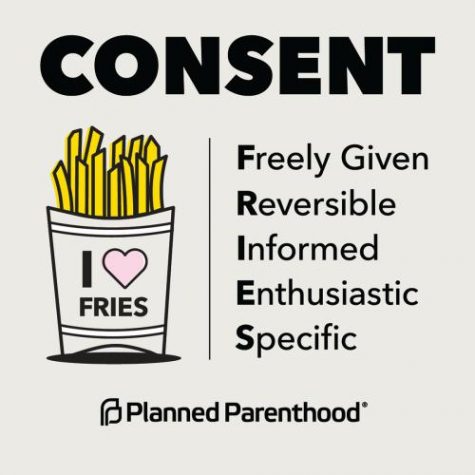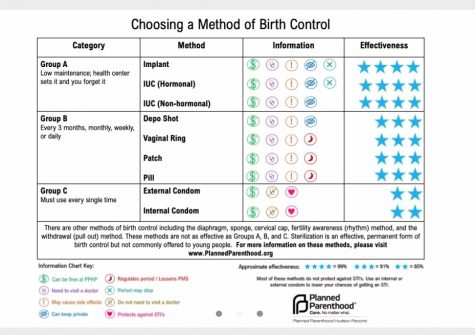The Art Of Contraception and Consent

One of the many beauties that come along with being a walking creature on earth is being able to engage in safe and consensual sex. It’s a favorable past time that are done by many, but something that many of afraid to speak about publicly.
However, organizations such as Planned Parenthood, RAINN (Rape, Abuse, & Incest National Network), The Consensual Project and many more are speaking out about the benefits and negatives regarding sex to try to end the stigma on sex and spread awareness of safe intercourse and healthy relationships. One of the main points of healthy intimate relationships is the understanding on consent and contraception.
Sexual Consent is when two or more people (engaged in the act) verbally or physically agrees to do something sexual with each other. Consent should be expressed when engaging in whether it’s kissing, touching, oral sex, vaginal sex, or anal sex. It must be clearly and freely given without pressure, trick, or threatening someone into giving it. It is important to note that consent can not be given if one of more parties are intoxicated, high or passed out.
“Consent is always the baseline for all relationships,” says Aimee Frier, an educator from Planned Parenthood. “Respect, Communication and Pleasure is the goal.”
Consent before, during and after sex is essential to making sure that everyone evolved feels comfortable but still half of all teens feel uncomfortable talking to their parents about sex, according to Planned Parenthood. The primary theory of why teenagers find it difficult, is because the discussion about consent is not open in their households. The finding comes after a report by “Everything You Always Wanted to Know about the Sex Talk (But Were Afraid to Ask),” a feature in the November issue of Family Circle, which shows that 42 percent of parents say they routinely talk to their teenage children about consent and how to say no while 34 percent of teens say they’ve either never or only talked once about what to do when they don’t want to have sex.
“There is certainly a stigma” says Frier. “That’s why it’s important to know your body and your limitations.”

In addition to consent, the conversation of how to obtain and use safe contraception is also essential to maintaining a healthy lifestyle.

The use of contraception delves deeper than simply wanting something that can “get the job done” choosing the right form of birth control depends on the person taking it and each one has their own pros and cons says Aimee Arpino, a community health advocator for Planned Parenthood Hudson Peconic.
“Everyone has their own preference and what works for me might not be right for you. It’s all about knowing what is available and finding the right one for you,” says Arpino.
There are many stigmas regarding contraception and that is one of the many reasons why many find it uncomfortable to discuss with others including their own doctors, but in reality, contraception is used by millions of people across the world each with different responsibilities and lifestyles. According to the Guttmacher Institute, using contraception allows women who already have children to be better parents. In addition, those with unintended pregnancy and unplanned childbirth are more likely to experience depression and anxiety in their lives—while adults who plan their children tend to live happier, also, relationships of parents who experience unintended pregnancy tend to dissolve faster and more frequently than those with planned ones. Last while certainly not least, parents who experience unplanned pregnancies tend to lack a healthy relationship with their child.
“Anyone who takes part in sex should know about birth control,” says Frier. “Even if your not having sex or using contraception, you [should get informed so you] can use that information for someone who does use birth control.”
Choosing the right form of contraception depends on the individual and can come down to their lifestyle, health conditions, responsibilities and what they feel comfortable using. It is important to know that there is no right or wrong form of safe contraception and while it’s important to use it when engaging in sexual activities, it is even more important to be well informed on the different forms on the market and make sure what your taking is best for your body.
For more information on birth control and consent contact Planned Parenthood at 1 (800) 230-PLAN (7526).

Britney Guzman is a Senior at Mercy College. She writes a column called Quali-Tea News where she discusses her love for cats, Taylor Swift and mental...







